Conflict
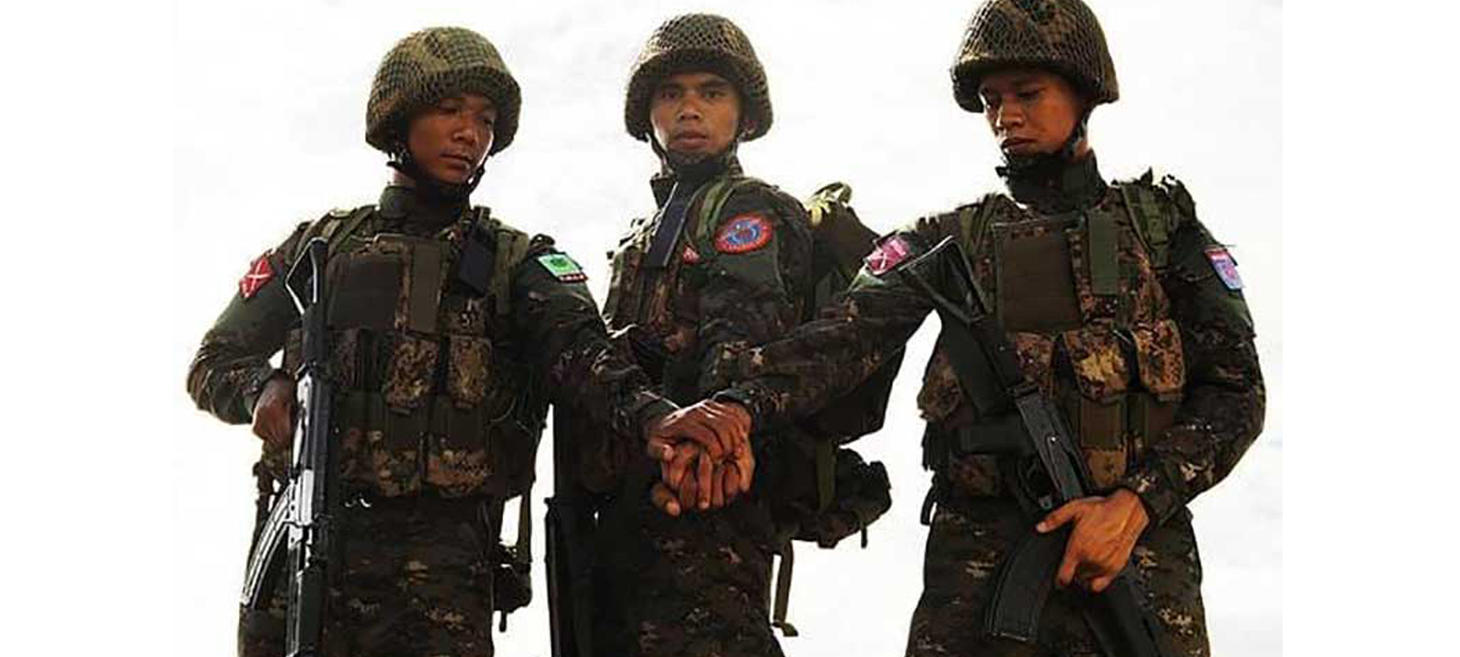
Myanmar Junta Designates Brotherhood Alliance Members ‘Terrorist’ Groups
The Myanmar military junta has officially designated the Brotherhood Alliance, which includes the Ta’ang National Liberation Army (TNLA), the Myanmar National Democratic Alliance Army (MNDAA), and the Arakan Army (AA), as terrorist organizations. This decision comes amid escalating conflicts between these groups and the military, particularly in northern Shan State and Rakhine State. The junta accuses these ethnic armed organizations of engaging in activities that threaten national stability, including attacks on military and police outposts, as well as infrastructure. The designation as terrorist groups allows the military to intensify its operations against them, potentially leading to increased military confrontations and impacting the peace process in Myanmar. The Brotherhood Alliance has been active in fighting for greater autonomy and rights for ethnic minorities in the regions they operate.
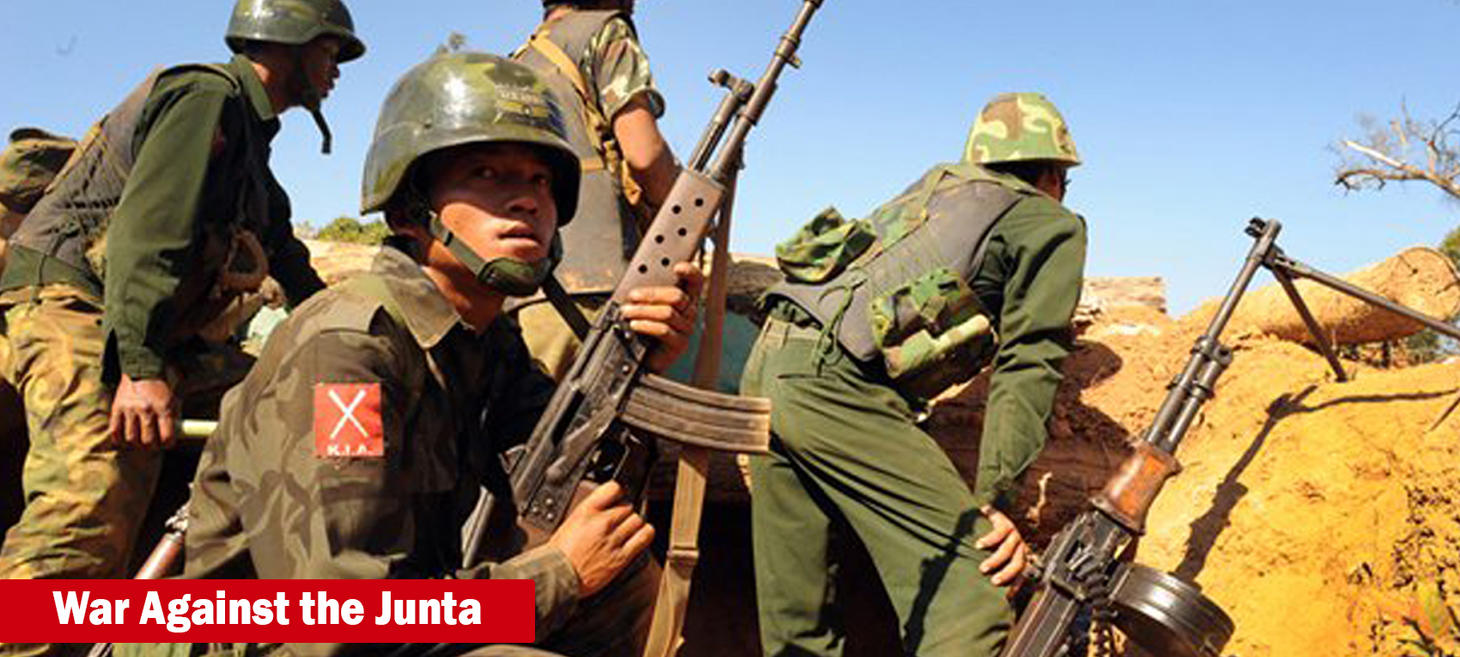
Kachin Fighting Spreads to Myanmar Junta Stronghold
Fighting between the Kachin Independence Army (KIA) and Myanmar's military junta has intensified and spread to the junta's stronghold in Myitkyina, the capital of Kachin State. The KIA, a major ethnic armed group, has launched attacks on military targets, including police stations and military outposts, as part of its broader campaign against the junta following the 2021 coup. This escalation marks a significant shift in the conflict, as the KIA has typically operated in more remote areas. The increased hostilities have led to heightened tensions and instability in the region, exacerbating the humanitarian crisis with thousands of civilians displaced by the ongoing violence. The junta's forces have responded with airstrikes and artillery shelling, further complicating efforts to reach a peaceful resolution.
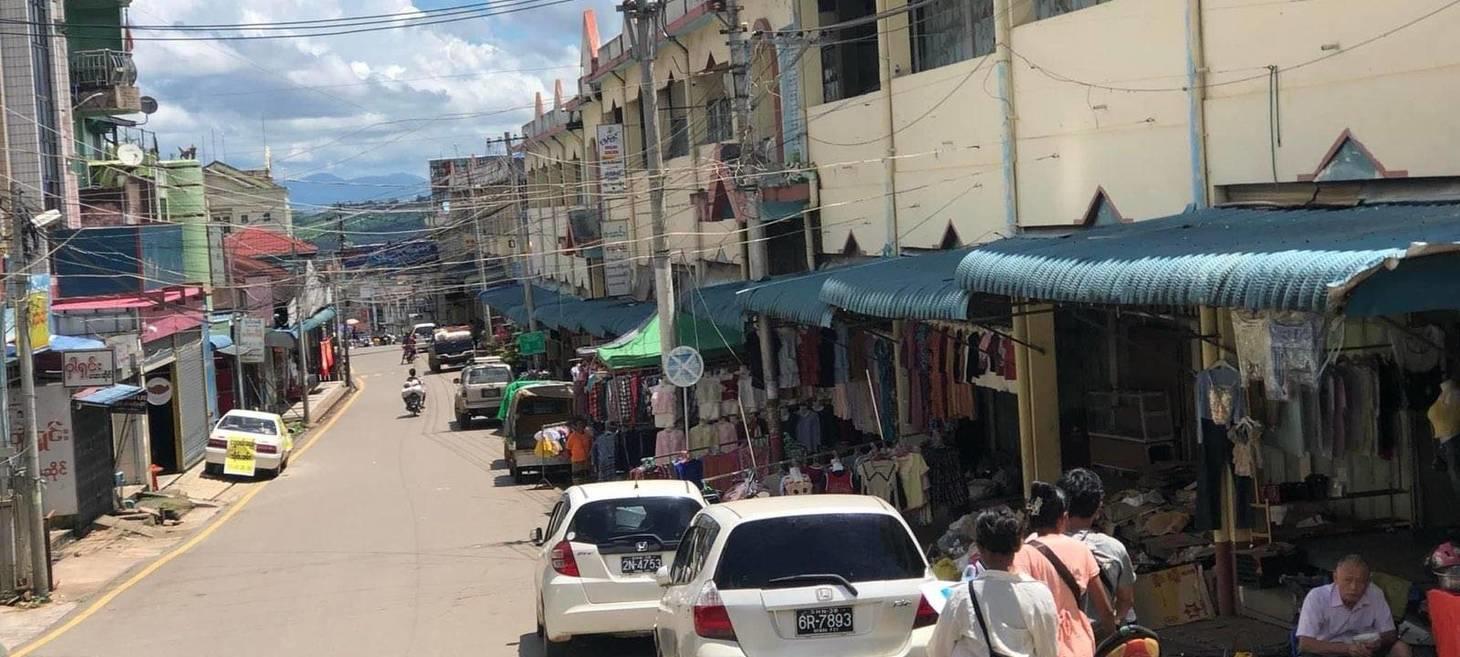
Lashio hit by junta airstrikes as efforts to return to normal continue
Lashio, a town in northern Shan State, Myanmar, has been targeted by airstrikes from the Myanmar military junta, disrupting efforts to restore normalcy in the region. The attacks have caused significant damage and heightened insecurity among residents, who are already grappling with the effects of ongoing conflict. These airstrikes are part of the junta's broader military campaign against ethnic armed groups and resistance forces in the area. Despite attempts by local authorities and communities to stabilize the situation, the continued military aggression poses challenges to peace and development initiatives, exacerbating the humanitarian crisis in the region.
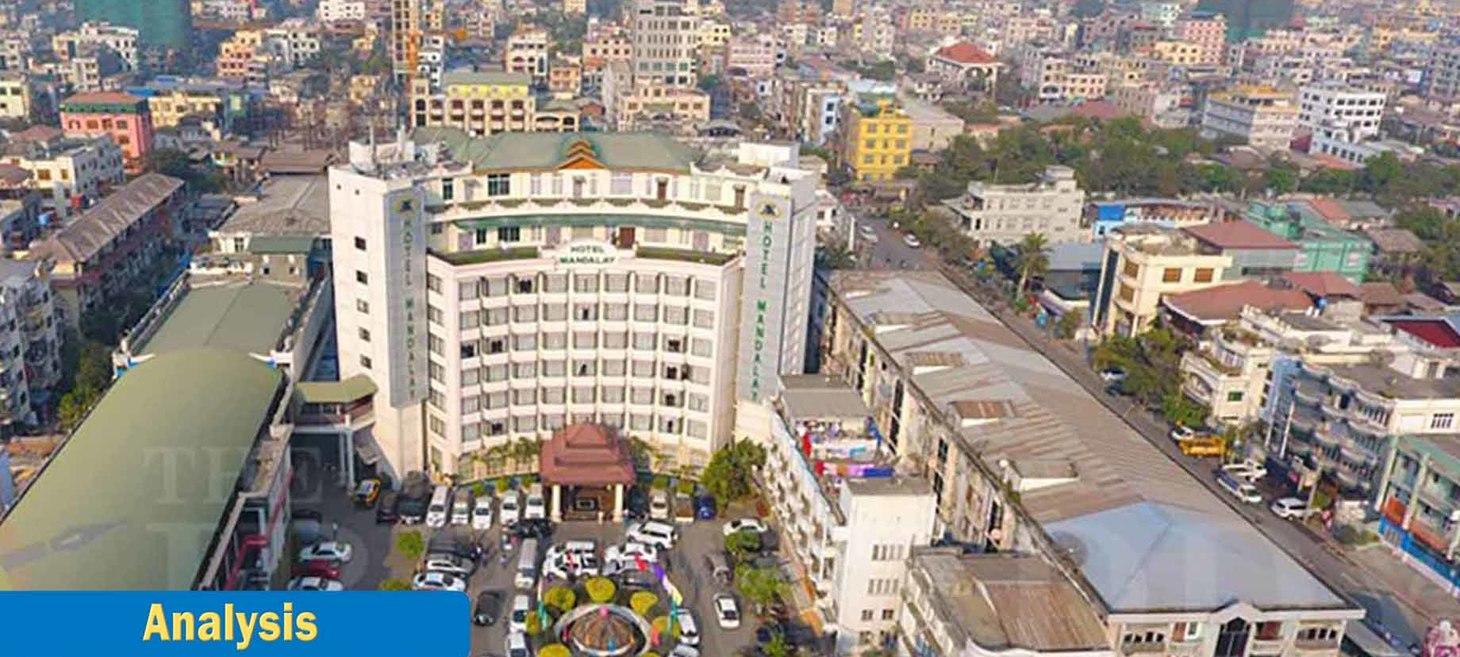
As Resistance Enters Mandalay, is Myanmar’s Second City on Brink of Falling?
Mandalay, Myanmar's second-largest city, is witnessing an escalation in resistance activities against the military junta, raising questions about its potential to fall into the hands of anti-regime forces. The city, traditionally a stronghold of military control, has seen an increase in attacks by resistance groups, including urban guerrilla tactics and targeted assassinations of junta officials. These developments reflect the growing strength and organization of the resistance movement, which is gaining momentum despite the junta's efforts to maintain control. The situation in Mandalay is emblematic of the wider national struggle, with the resistance gaining ground in urban areas previously considered secure by the regime. This shift in dynamics suggests a significant challenge to the junta's authority as the resistance continues to expand its influence in key cities across Myanmar.
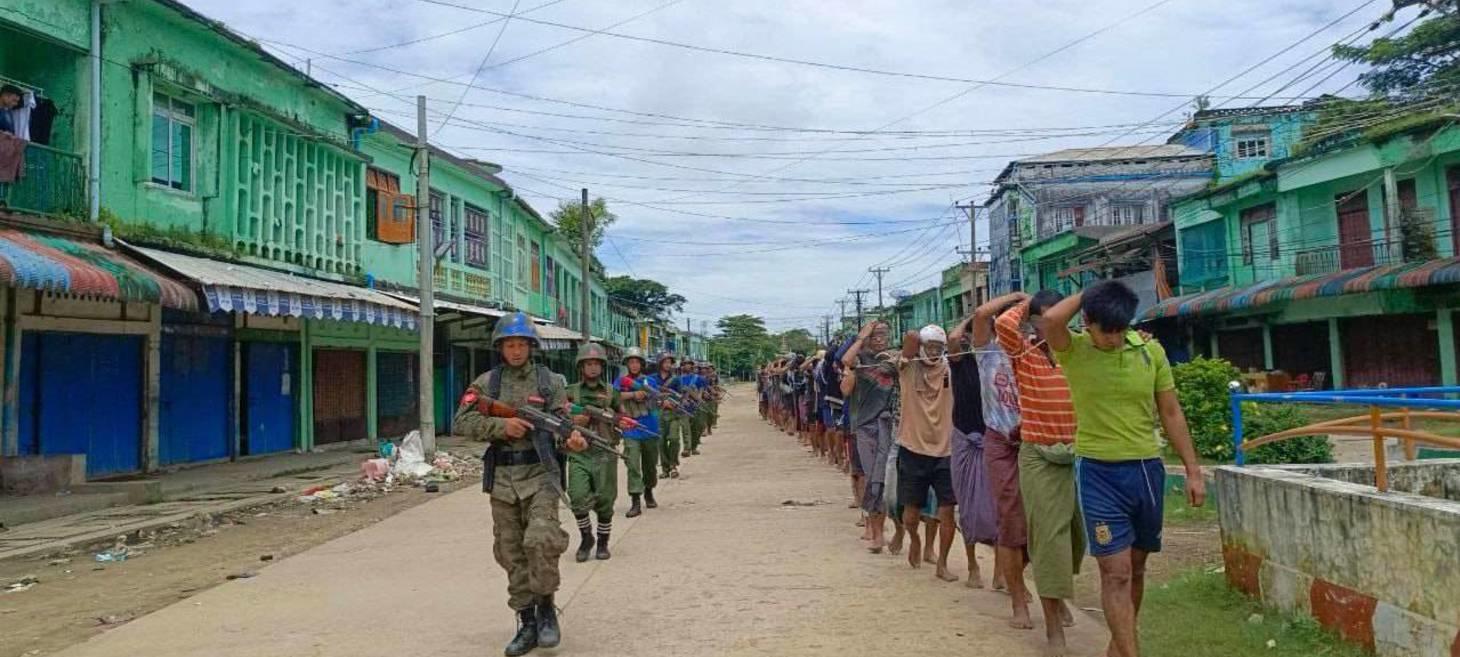
Arakan Army rescues 26,000 civilians used as human shields by junta forces
The Arakan Army (AA) has reported rescuing nearly 26,000 civilians allegedly used as human shields by Myanmar's junta forces and affiliated armed groups during intense battles for control of Maungdaw Township since August 4, 2024. The AA's offensive has faced strong resistance from entrenched junta forces, with fighting extending beyond military confrontations to include clashes with other armed groups reportedly supported by the Military Council. The conflict has escalated, with reports of artillery fire and chemical bomb attacks by junta forces. The AA claims to have made significant progress, discovering bodies of opposing forces, capturing troops, and seizing ammunition during a three-day battle from August 27-29. The fighting has spread to other areas, including Gwa and Thandwe Townships, where the junta's army, navy, and air force reportedly collaborate to resist the AA's advances.
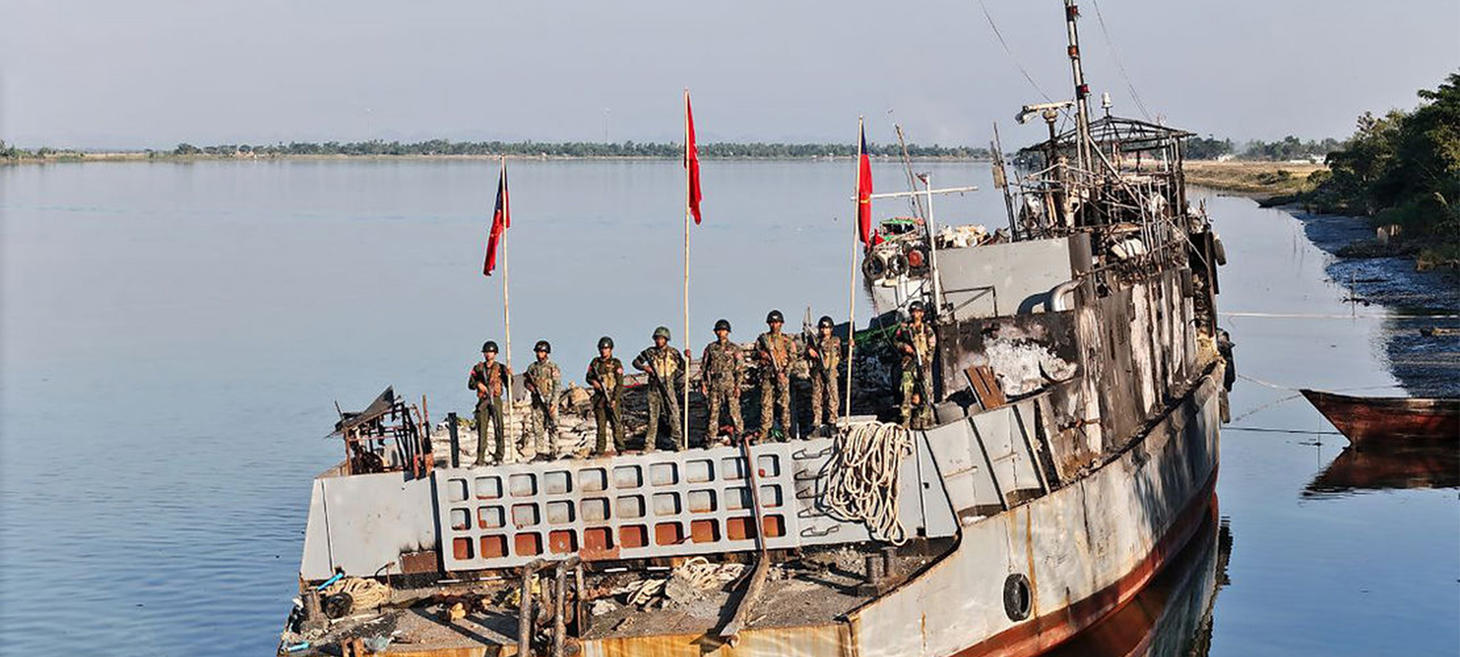
Arakan Army Penetrates Myanmar Junta Naval Base in Rakhine State
The Arakan Army (AA) launched a successful attack on a Myanmar junta naval base in Rakhine State, marking a significant escalation in the ongoing conflict. The AA managed to penetrate the base, resulting in casualties among the junta's forces and the capture of weapons and ammunition. This attack underscores the growing capabilities of the AA and highlights the increasing instability in the region. The assault on the naval base is part of the broader resistance efforts against the military regime, which has been facing widespread opposition since the coup. The incident reflects the volatile security situation in Rakhine State, where ethnic armed groups are intensifying their operations against the junta.
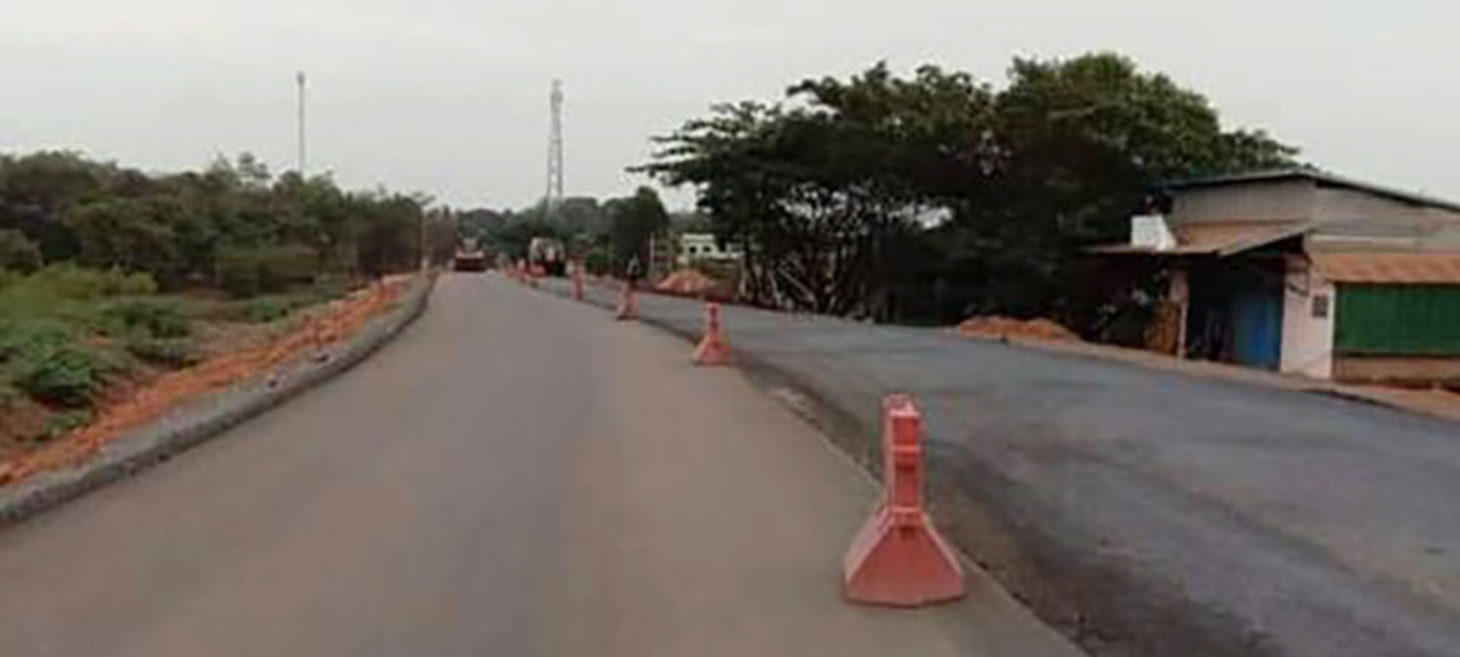
BGF intensifies troop deployments in and around Kyondoe Town, and bridges, Karen State
The Border Guard Force (BGF) has significantly increased its troop presence in and around Kyondoe town and nearby bridges in Karen State, Myanmar. This escalation of military activity has raised concerns among local residents, who report a surge in BGF personnel and vehicles in the area. The BGF has established new checkpoints and intensified security measures, particularly at strategic locations such as bridges. Local sources indicate that these deployments are likely in response to recent clashes with resistance forces and to maintain control over key transportation routes. The heightened military presence has created an atmosphere of tension and uncertainty among the civilian population, with some fearing potential conflicts or restrictions on movement.
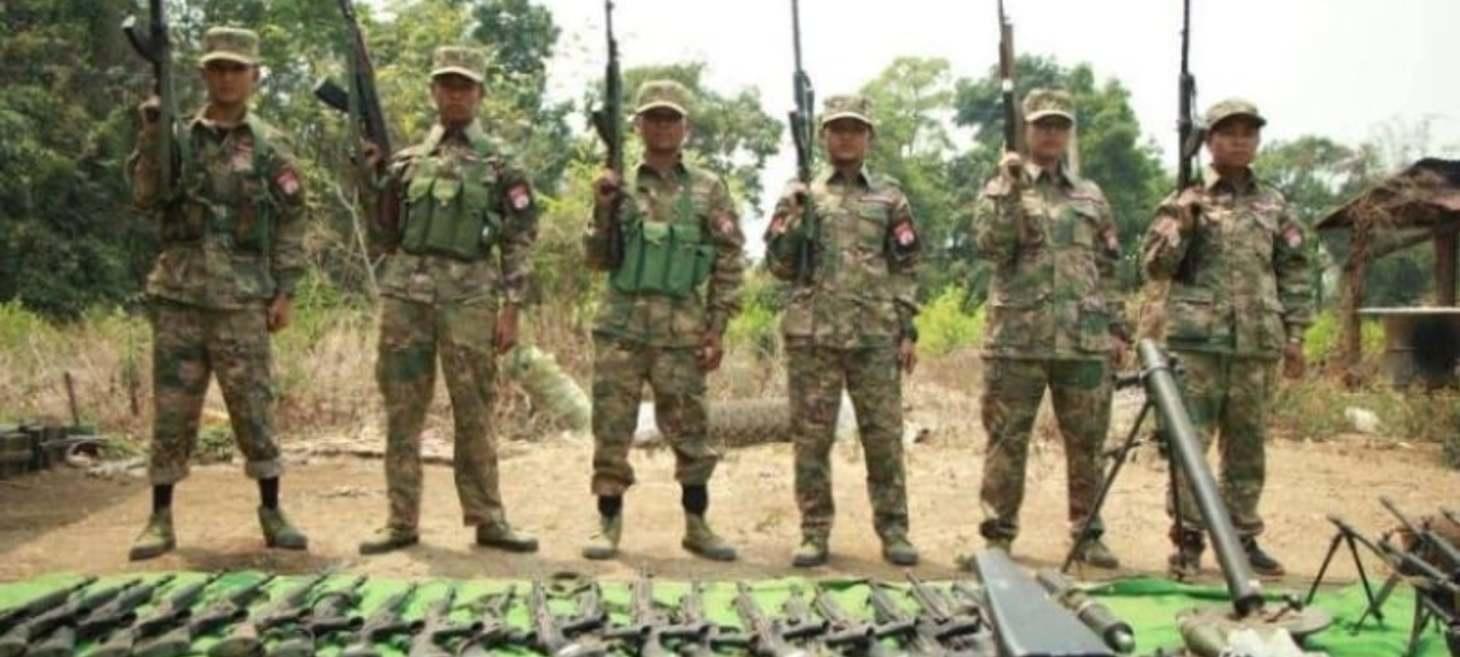
Mandalay PDF nears goal of attacking Nay Pyi Taw as operations intensify in Northern Shan State and Mandalay Region
The People's Defense Forces Mandalay (MDY PDF) has announced significant progress in their campaign against Myanmar's Military Council, stating they are nearing their goal of launching an attack on Nay Pyi Taw, the capital city. As part of the second phase of Operation 1027 and Operation Shan-Mann, which began on June 25, 2024, revolutionary forces have intensified fighting in Northern Shan and Mandalay regions. They have successfully captured several military council camps and towns, including Mogok, Singu, Tagaung, and Thabeikkyin in the Mandalay Region. MDY PDF claims they can now travel from Northern Shan State to Mandalay in a single day, indicating that the route to Nay Pyi Taw is within reach. The group has also reported clearing all smaller outposts along the Mogok-Singu road and achieving approximately 80 percent of their military objectives as of mid-August. This progress represents a significant escalation in the revolutionary forces' campaign against the military council.
Conscription
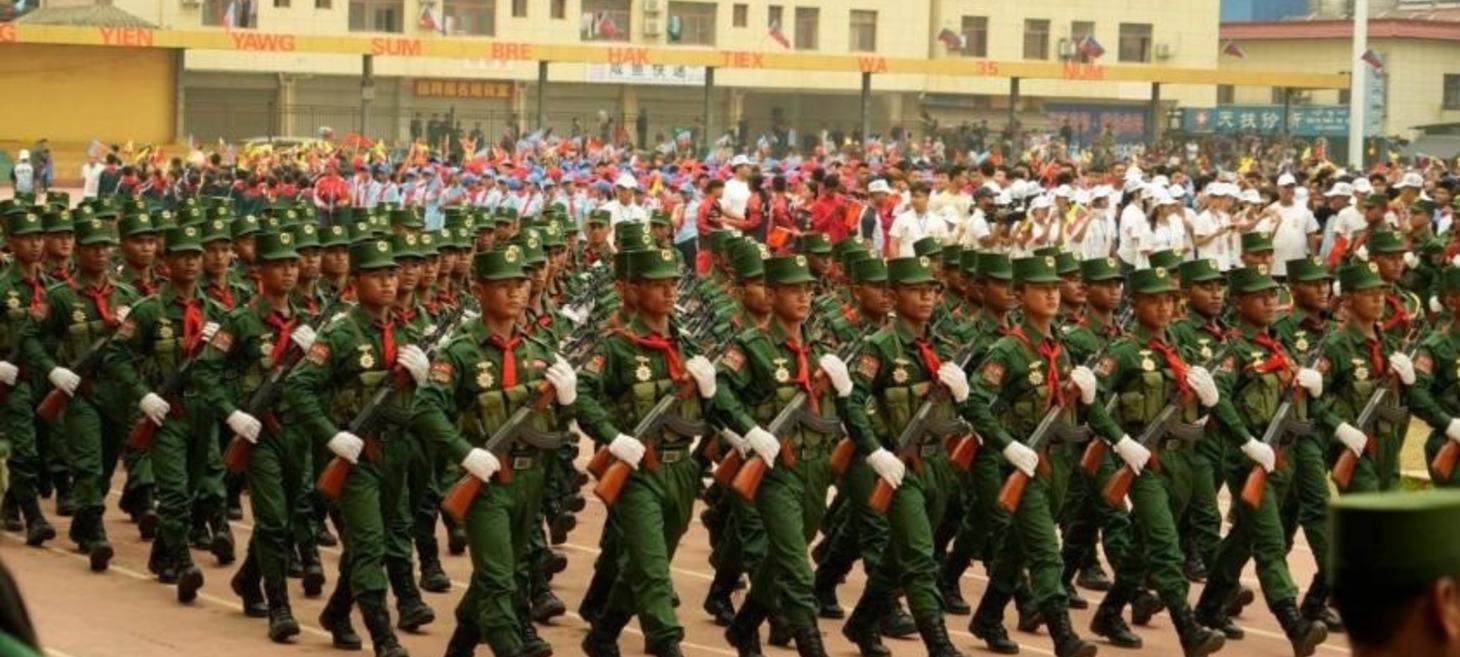
UWSA Southern Military Region Summons Wa Men Abroad to Recruit 4,000 Conscripts
The United Wa State Army (UWSA) Southern Military Region (171) is planning to recruit 4,000 new conscripts in Mong Hsat District, Eastern Shan State, and has called on Wa men living abroad, particularly those in Laos, to return home for registration by September 7. The recruitment drive, which began in August, has seen limited media coverage but involves significant pressure, with reports indicating that if individuals fail to register, their family members may face consequences until they comply. This initiative aims to bolster UWSA forces, especially in areas like Lashio town, where many soldiers have been reassigned for security, leaving local units understaffed. Recruitment is taking place in several villages within Mongton Township, targeting individuals aged 15 and above, regardless of gender. The UWSA Southern Military Region encompasses five brigades and 25 battalions, with a population of about 100,000 Wa people. Despite attempts to confirm details with the UWSA Southern Region Liaison Office, no response has been received.
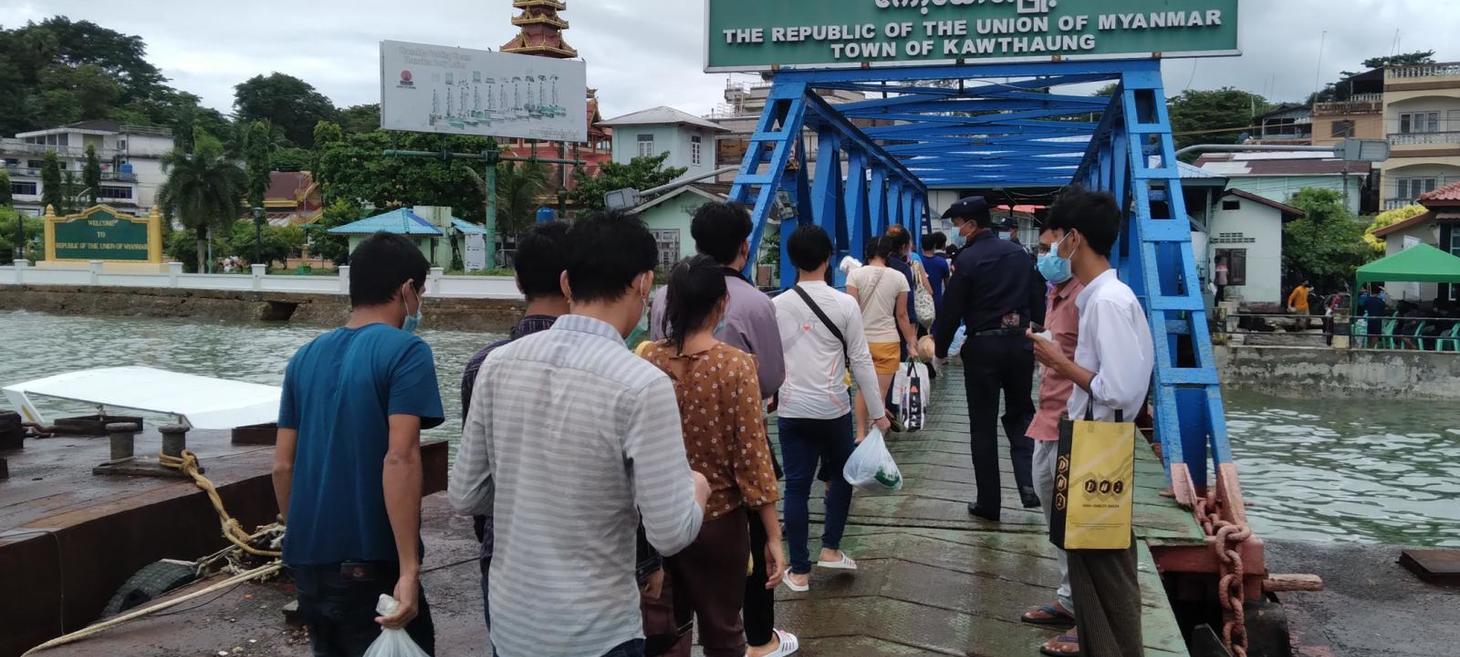
Young men no longer allowed to leave southern Myanmar town to enter Thailand
Junta authorities in Myanmar have imposed a new restriction preventing young men aged 18 to 35 from leaving the town of Kawthaung to travel to neighboring Thailand. This measure, which took effect recently, has significantly disrupted the usual flow of people across the Kraburi (Pak Chan) River to the Thai town of Ranong, a route commonly used by locals for work and business purposes. The restriction has led to a noticeable decrease in border traffic, which typically sees 400 to 500 people crossing daily, leaving both local residents and traders without work. Many Kawthaung residents hold blue border passes that allow them to travel to Thailand, while non-residents use green passes, but these permits are now rendered ineffective for the affected demographic.
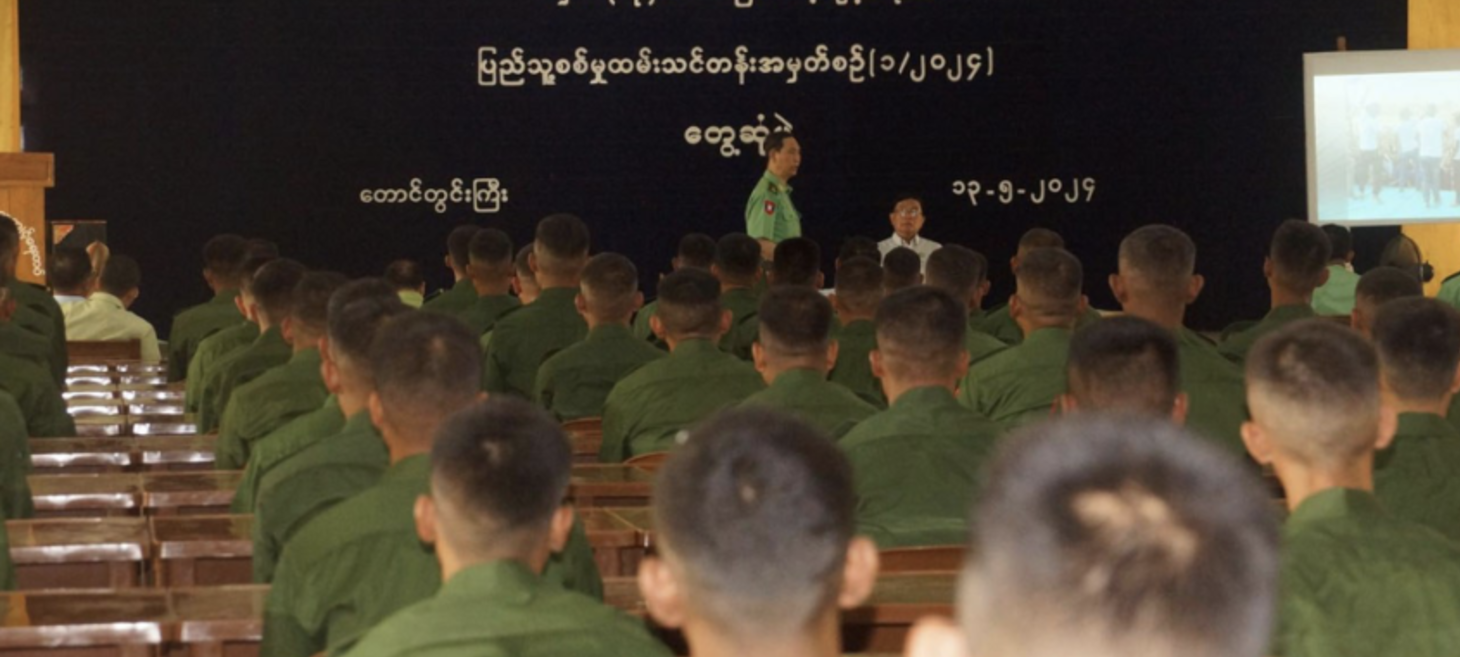
Junta sends arbitrarily arrested youths in Magway to frontlines
In Magway Region, Myanmar, the military junta has reportedly been sending arbitrarily arrested youths to the frontlines of conflict, a move that has drawn significant concern and condemnation. These young individuals, detained without clear charges, are being coerced into serving as porters and human shields in active combat zones, exposing them to extreme danger. This practice is part of the junta's broader strategy to bolster its military forces amid ongoing clashes with resistance groups. The forced conscription of these youths highlights the regime's disregard for human rights and the worsening humanitarian situation in conflict-affected areas. The international community and human rights organizations have criticized these actions, calling for increased scrutiny and intervention to protect civilians from such exploitative practices.
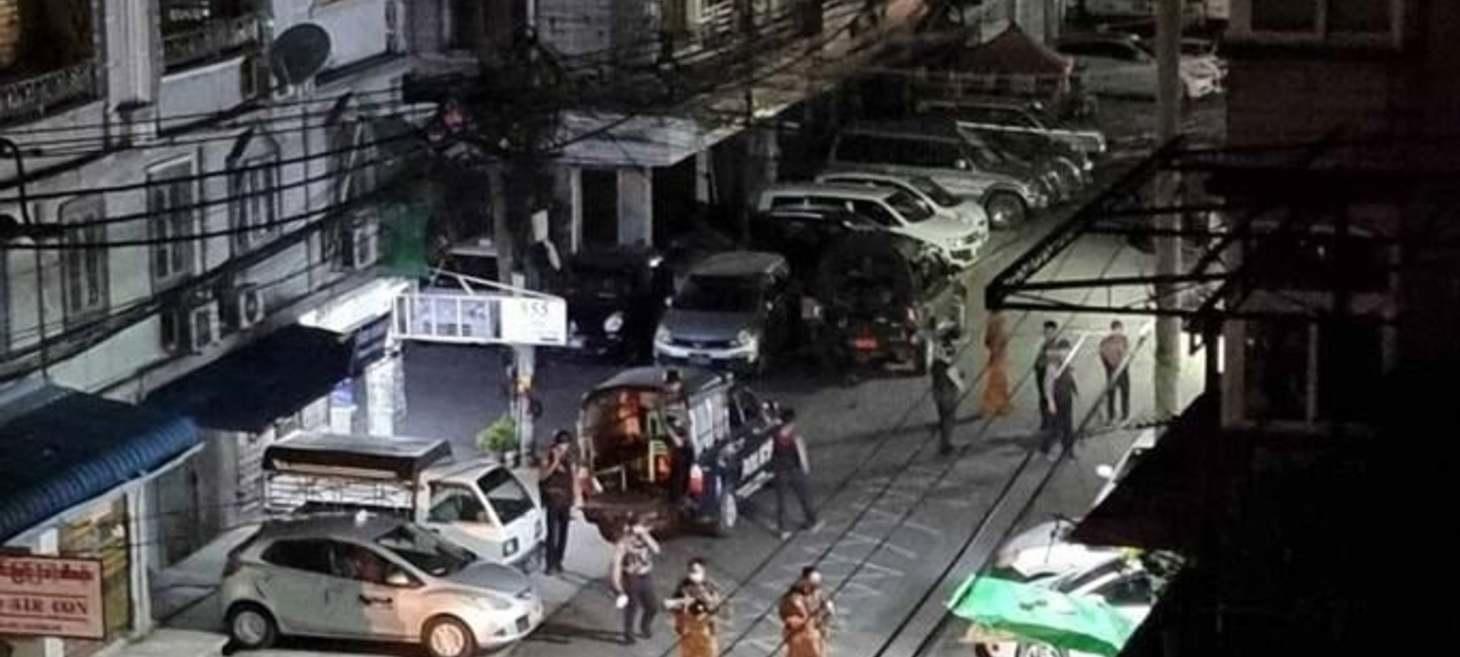
Yangon reinstates curfew amid growing tensions and reports of forced recruitment
The Yangon General Administration Department has reinstated a curfew from 1:00 am to 3:00 am in 31 out of 33 townships in the Yangon region, effective from August 27, excluding Seikgyikanaungto and Dala townships. This curfew is a continuation of restrictions imposed by the junta after the February 2021 coup, with the hours reduced from the original midnight to 4:00 am curfew set on October 27, 2023. Townships under martial law will continue enforcing the curfew regardless of martial law status. Revolutionary forces suspect the junta may use the curfew to facilitate illegal arrests, such as forcibly recruiting porters. Reports have emerged of young people being pursued at night, fueling rumors of forced military recruitment, though these claims remain unverified. The curfew has led to deserted streets after 8:00 pm, with businesses closing earlier and residents feeling unsafe to venture out. The Mayangone Democratic Front has urged caution, warning that the junta might exploit the situation. Amidst ongoing unrest, the junta struggles to maintain control, enforcing military service laws and recruiting new soldiers, while many young men resist joining the military, seeking to escape or join revolutionary forces instead.
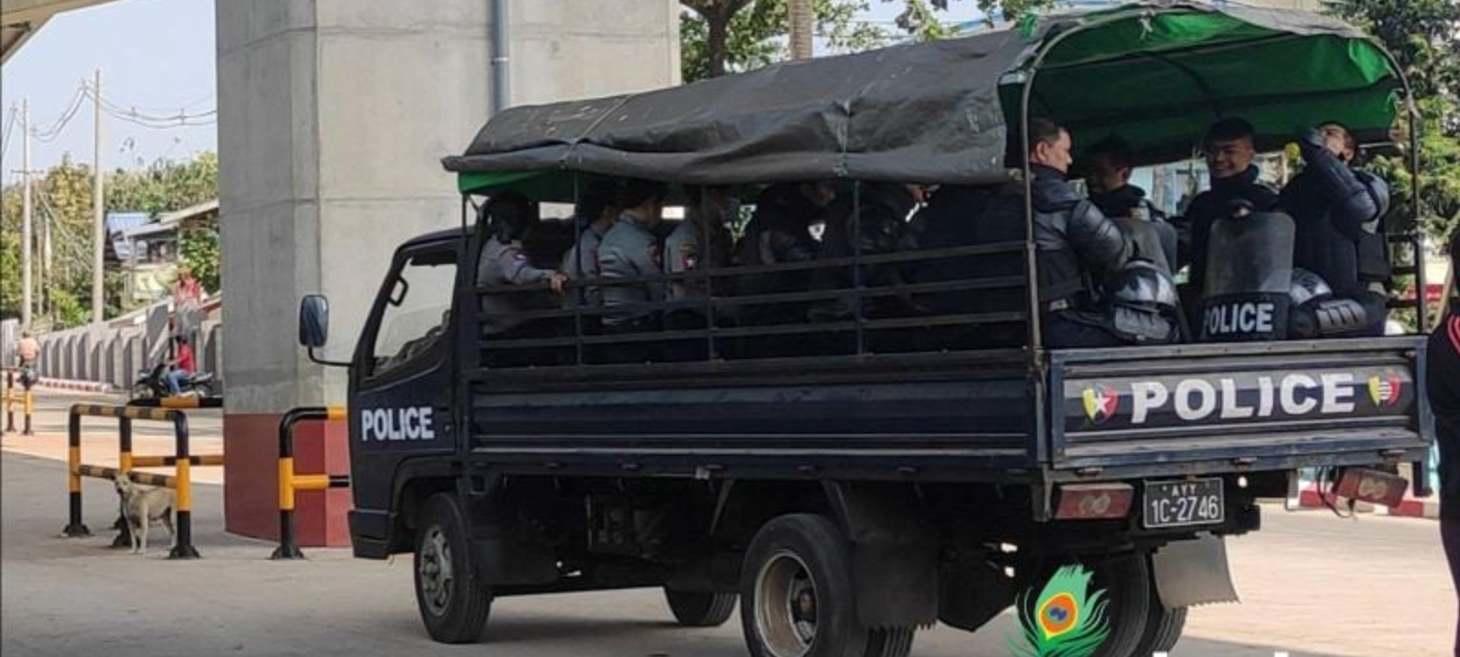
Myanmar junta reportedly conducts forced conscription of civilians in Pathein to meet military quotas
On the night of August 26, 2024, Myanmar's military and police forces reportedly initiated forced conscription of civilians, including youths, in Pathein, Ayeyarwady Region, as part of efforts to meet recruitment quotas. This operation, mandated by the military council, involves conducting conscription at night due to previous failures when individuals fled to avoid mandatory service. Despite news leaks, the conscription efforts are set to continue, with soldiers and police authorized to detain individuals at roadblocks. Local reports indicate increased roadblocks and checks, causing concern among residents about being forcibly conscripted. The military council's Conscription Law, enacted on February 10, 2024, requires military service for all adult men and women, leading to many fleeing the country or joining resistance forces. Thousands of men from the Ayeyarwady Region have already been conscripted, trained, and deployed to frontline positions. Similar forced conscription incidents have been reported in other regions, with individuals often choosing between military service or paying a substantial fee to avoid it.
Crime & Narcotics
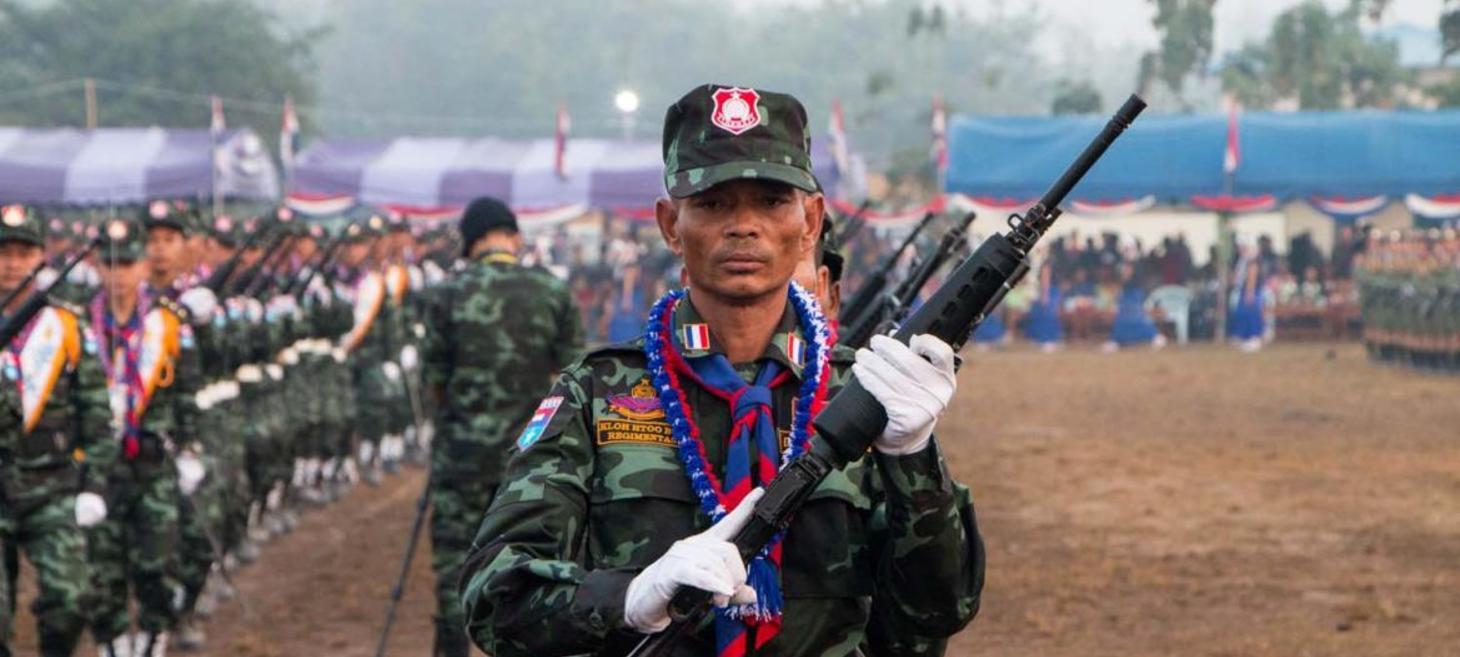
South for the winter: Myanmar’s cyber scam industry migrates
Myanmar's cyber scam industry is undergoing a significant migration, moving operations from Myawaddy Township to Payathonesu in southern Kayin State. This relocation is facilitated by the Kayin State Border Guard Force (BGF) and the Democratic Karen Benevolent Army (DKBA), who are assisting Chinese criminal syndicates in setting up new bases in the area. The move is partly in response to a crackdown on similar operations in northern Shan State, which was reportedly influenced by Chinese authorities. Despite the BGF's announcement to expel foreigners from Shwe Kokko, the relocation appears to be a strategic shift rather than a genuine crackdown. The influx of Chinese nationals has transformed Payathonesu, with local businesses adapting to cater to the new arrivals, who are primarily involved in cyber scam activities targeting English-speaking victims. The relocation has also led to increased military presence and security measures, with the BGF and DKBA providing protection and logistical support for the syndicates.
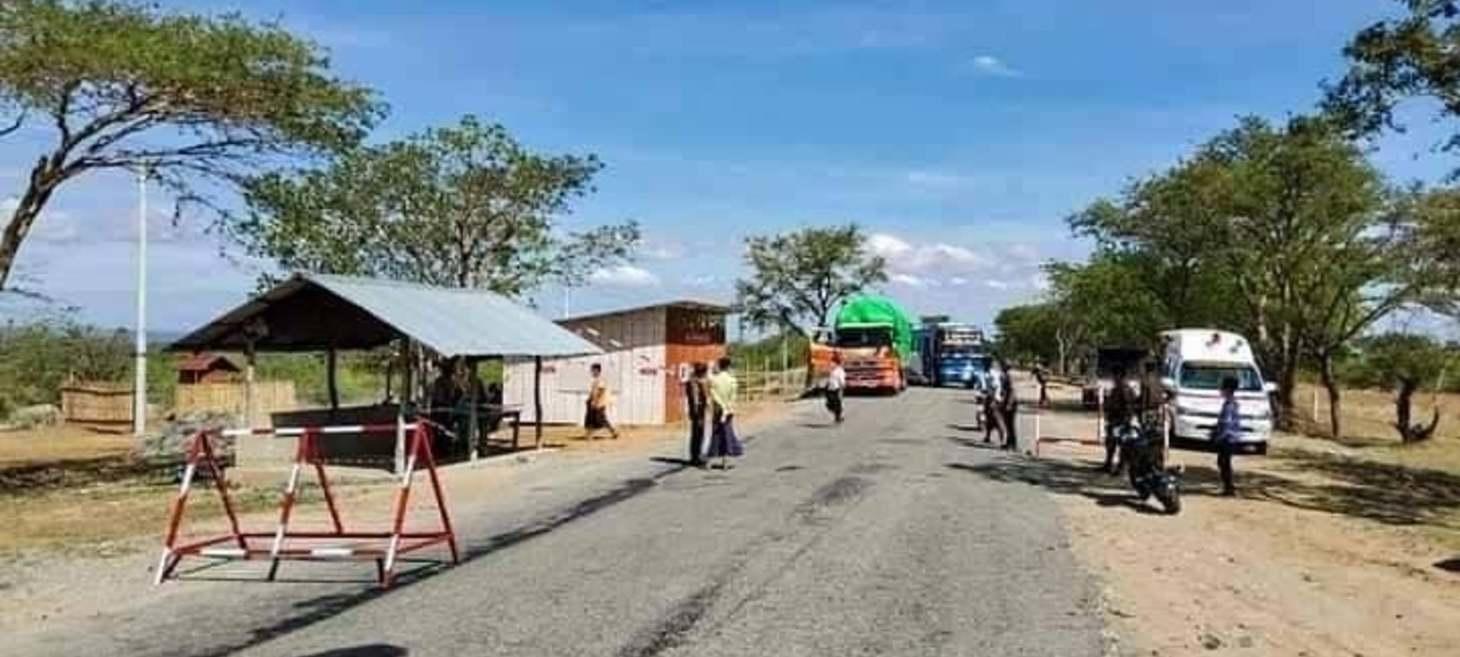
Myanmar police, soldiers, and Pyu Saw Htee militias rob vehicles on Myingyan-Nabuaing road
On August 27, 2024, local residents reported a series of robberies along the Myingyan-Nabuaing Road in Myingyan Township, Mandalay Region, involving police, military council soldiers, and members of the Pyu Saw Htee militia. At least ten passenger and tourist vehicles were targeted, with incidents occurring near Kukkei village police station and Kyaukkan village. Around 7:15 am, Pyu Saw Htee members and military soldiers stopped four "Mingalarpar" passenger cars, robbing passengers of phones, gold, money, and other belongings without violence but under the threat of weapons. Later, around 1:00 pm, similar robberies were reported near Kukkei village police station. A Myingyan resident noted that one driver lost over 1.5 million kyats and a phone. These incidents follow similar robberies on July 4, prompting the Myingyan Public Movement Committee to warn against using the Myingyan-Nabuaing Road unless necessary and to seek travel information beforehand.
Economy
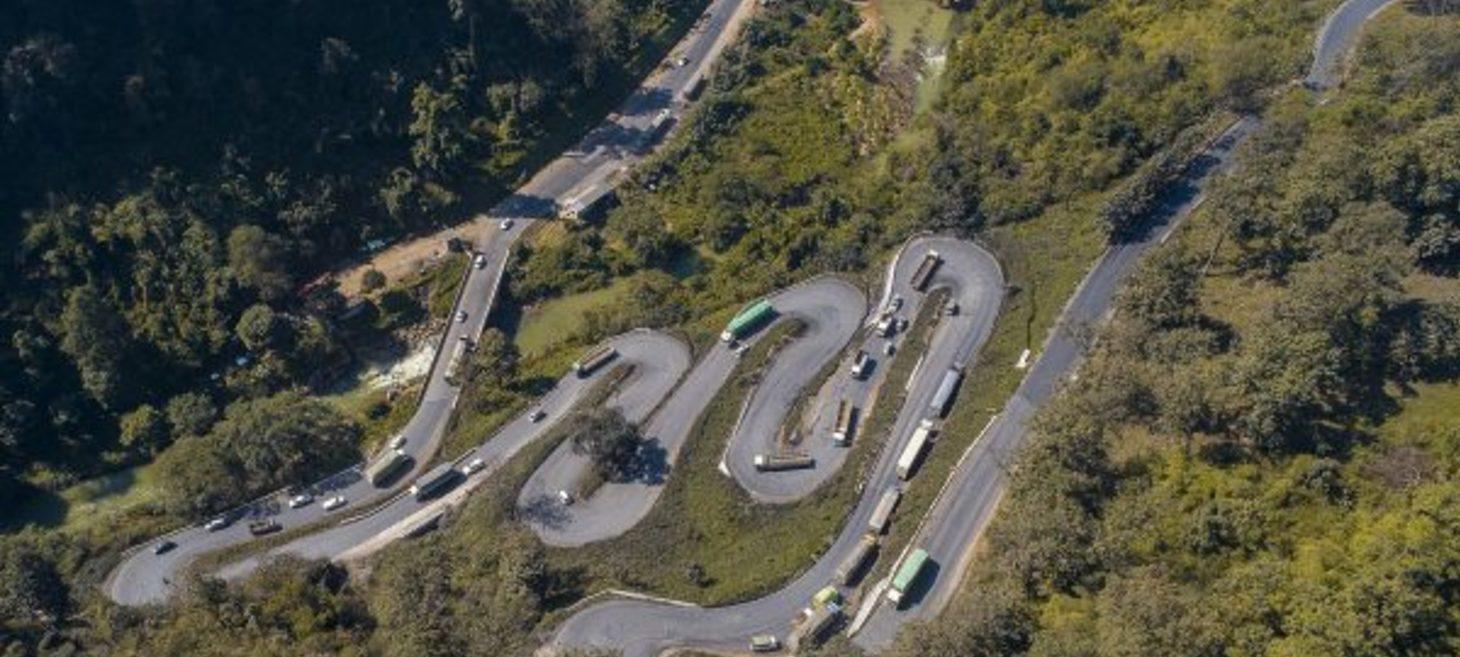
Myanmar’s Border Trade With China and Thailand Has Collapsed
Myanmar's border trade with China and Thailand has significantly deteriorated due to ongoing conflicts and control shifts at crucial trade routes. The trade volume through the Myawaddy crossing to Thailand plummeted by 87%, and overall trade with China also saw a sharp decline, with ethnic armed organizations (EAOs) now controlling routes that handle 91% of the overland trade with China. This shift has increased illegal trade, constituting about 80% of border trade. In response, the junta has attempted to open new, albeit more costly, trade routes through eastern Shan State and increase air cargo shipments. Still, these efforts face significant logistical challenges and higher costs. The collapse of traditional trade routes, compounded by severe inflation, is likely to exacerbate economic difficulties and discontent within Myanmar, while the future resumption of trade remains uncertain amid continued hostilities and shifting control of key trade passages.
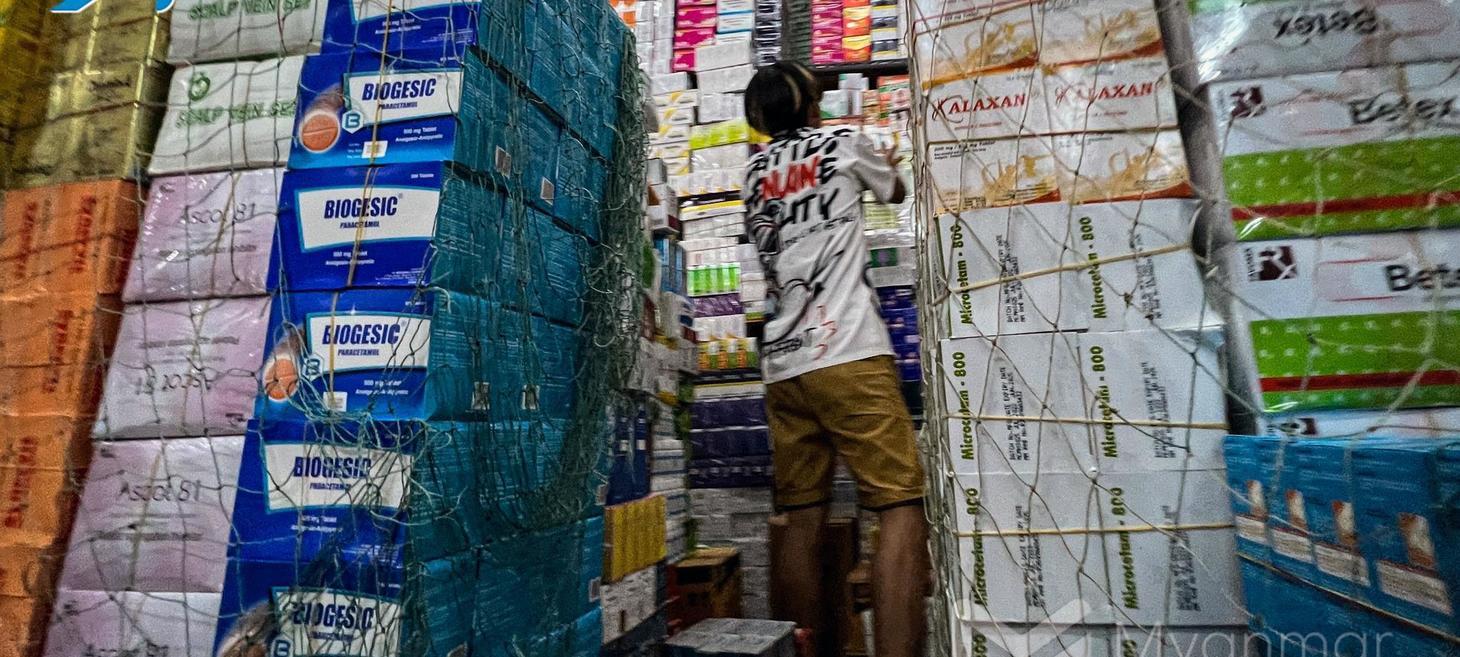
Myanmar regime tightens rules on importing pharmaceuticals
The Myanmar military regime has implemented stricter regulations on the importation of pharmaceuticals, requiring importers to obtain approval from the Ministry of Health and the Ministry of Commerce. This move is part of a broader effort to control the pharmaceutical market, which has faced challenges such as smuggling and counterfeit drugs. The new rules mandate that importers provide detailed documentation, including certificates of analysis and good manufacturing practice certificates. These changes have raised concerns among industry stakeholders about potential disruptions in the supply chain and increased costs, which could affect the availability and affordability of medicines in Myanmar. The regime's actions are seen as an attempt to consolidate control over the pharmaceutical sector amidst ongoing economic and political instability in the country.
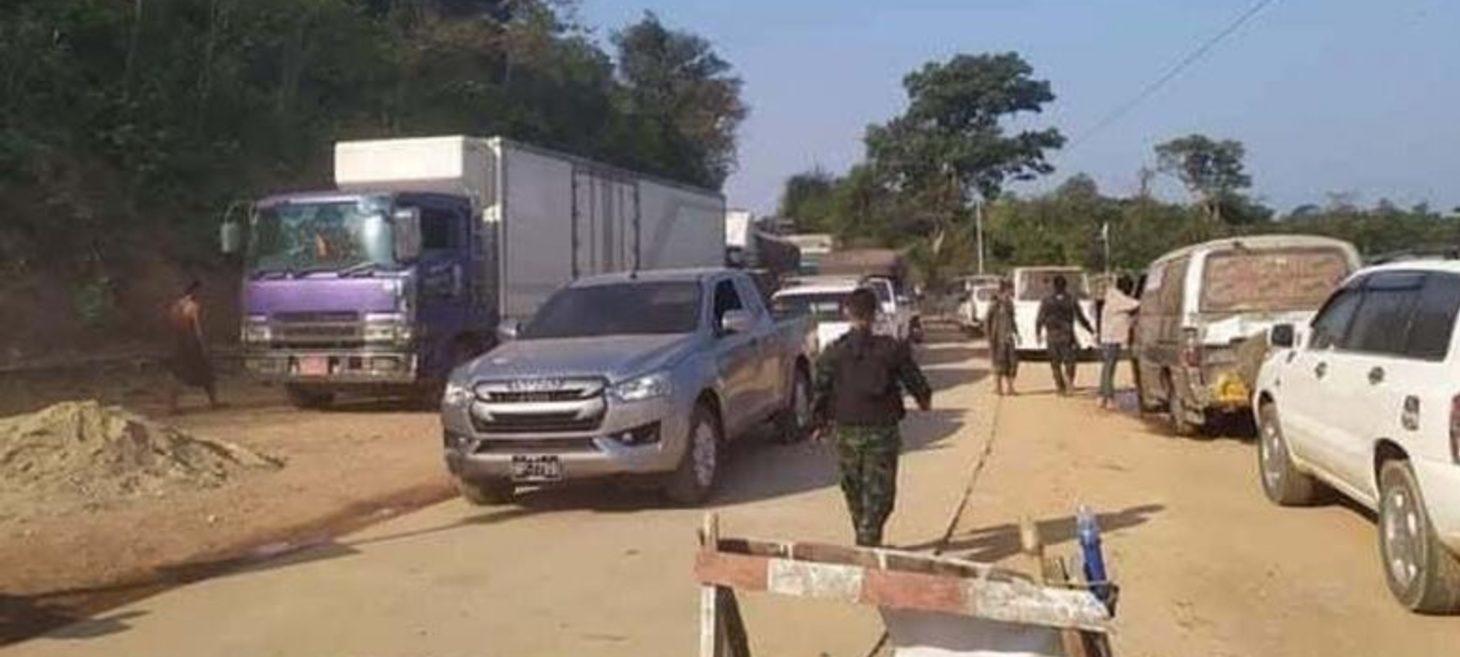
Junta threatens to seize cargo trucks paying taxes to resistance forces in Karen State
The Myanmar military junta has issued threats to seize cargo trucks that pay taxes to resistance forces in Karen State, escalating tensions in the region. This move comes as part of the junta's efforts to cut off financial support to resistance groups operating in the area. The regime has specifically targeted trucks traveling along the Myawaddy-Kawkareik-Hpa-an road, a crucial trade route connecting Myanmar to Thailand. Truck owners and drivers now face a difficult choice between risking confiscation by the junta or potential retaliation from resistance forces if they refuse to pay taxes. This situation highlights the complex dynamics of control and revenue collection in conflict-affected areas of Myanmar, where both the military and resistance groups vie for resources and influence.
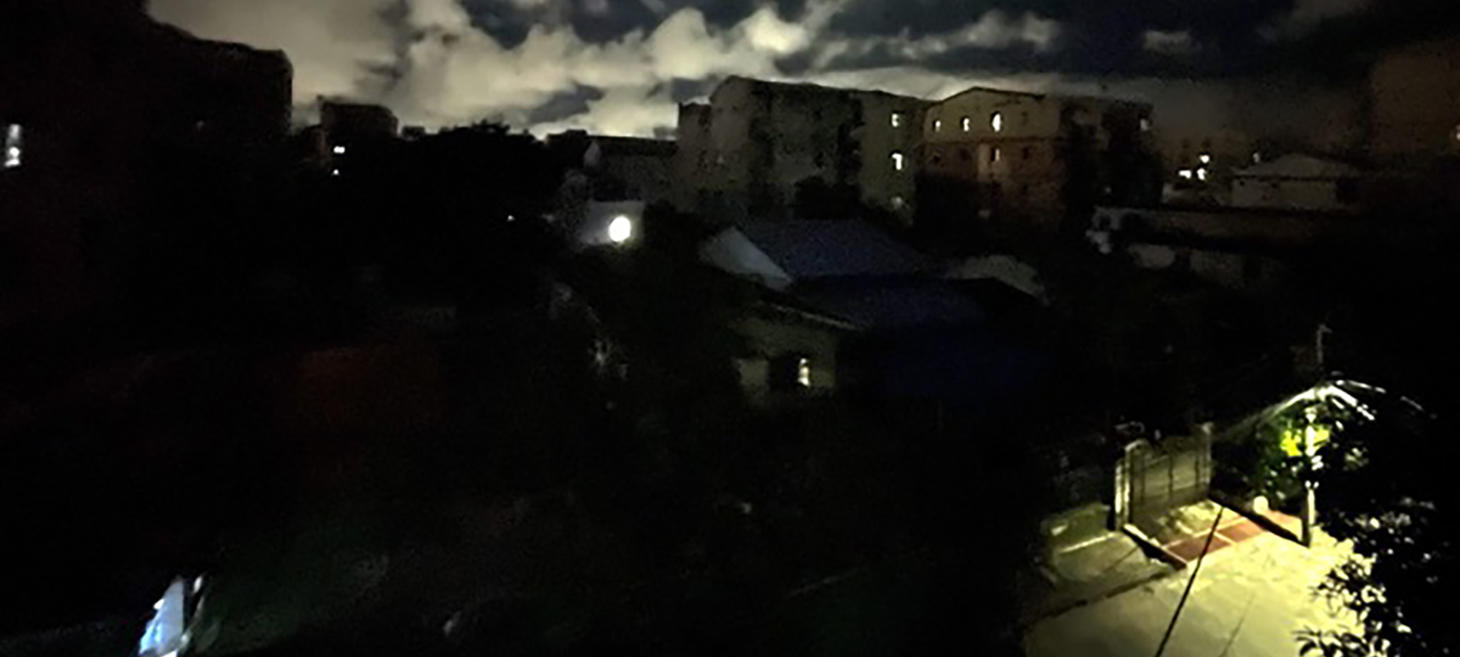
Myanmar Junta to Double Electricity Rates
Myanmar's military junta has announced a significant increase in electricity rates, set to take effect on September 1, 2024. This decision will see electricity prices for residential, business, and industrial users more than double. The regime justifies the hike by citing the need to cover the rising costs of electricity generation, which have been exacerbated by the depreciation of the kyat and increased fuel prices. The new rates will impose a heavier financial burden on households and businesses already struggling with Myanmar's economic challenges. This move is expected to exacerbate the country's economic difficulties, as it comes amid ongoing political instability and a deteriorating economic environment.
Ethnic Issues
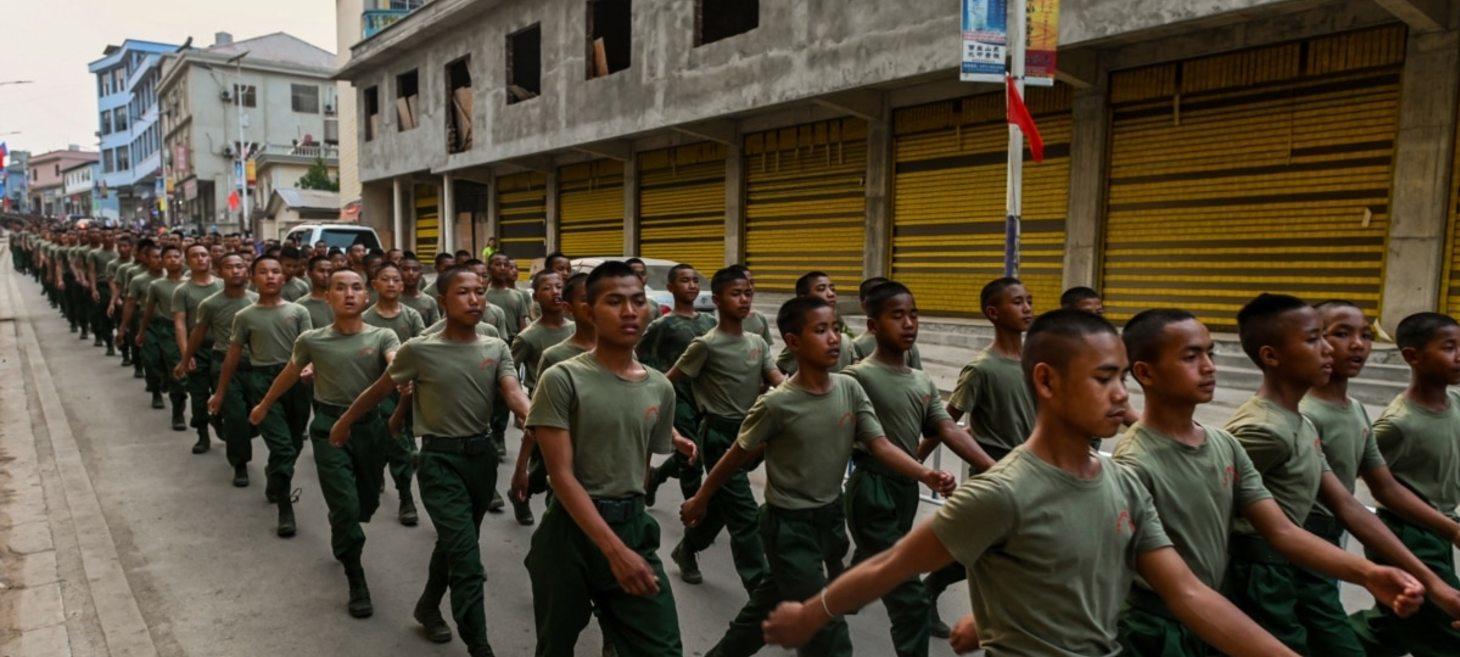
Myanmar's largest rebel group quietly gains strength amid civil war - VOA Asia
The United Wa State Army (UWSA), Myanmar's largest and most powerful ethnic armed group, is quietly expanding its influence amid the country's ongoing civil war. With around 30,000 soldiers, the UWSA has moved troops into new positions across Shan State, taking advantage of the Myanmar military's weakened control. The group has gained new footholds west of the Salween River without engaging in direct conflict, leveraging its relationships with various factions, including business dealings with the military and arms trades with other rebels. This expansion is seen as beneficial to China's interests in Myanmar, potentially advancing its infrastructure projects and influence in the region. Additionally, the UWSA's involvement in the illegal drug trade, particularly methamphetamine production, is believed to be growing, with indications of operations extending west of the Salween River. Despite claiming to have abandoned the drug trade, the UWSA is still considered a major player in the region's illicit activities.
Foreign Affairs
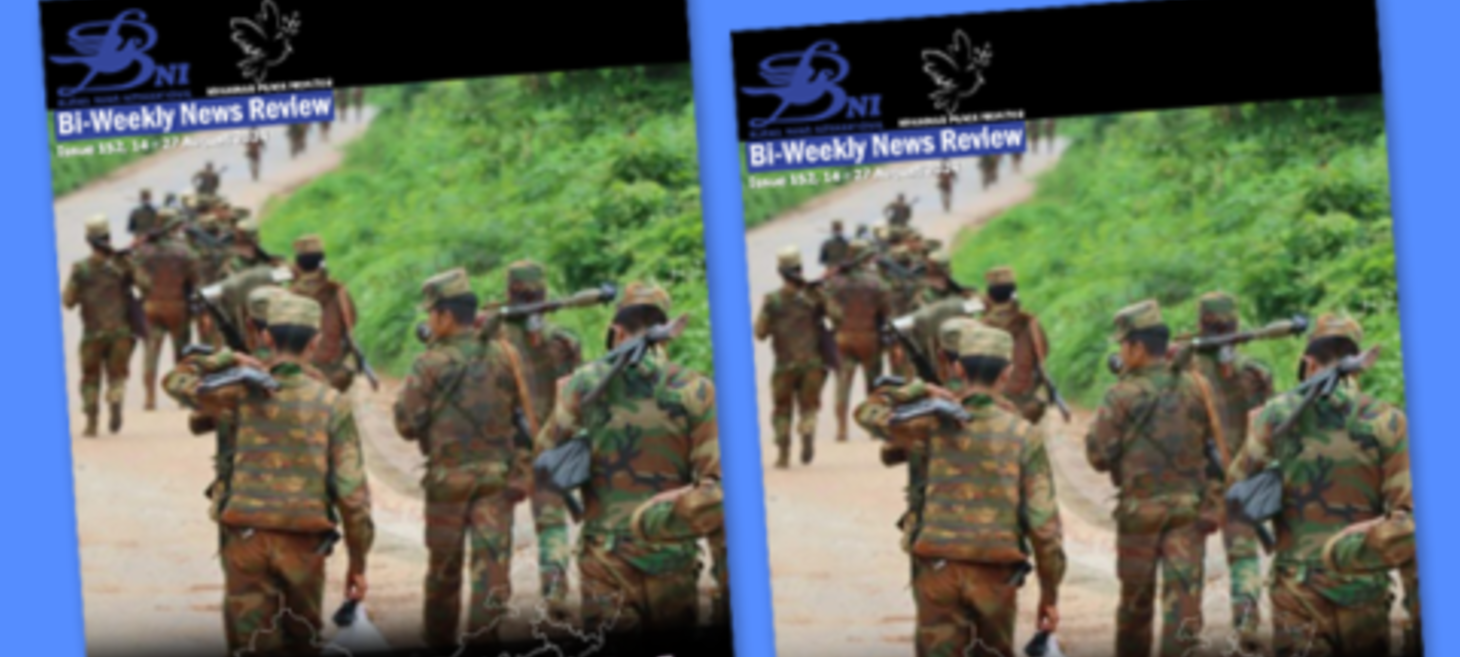
“Operation 1027” Second Phase And China’s Restless Moves
China is increasingly active in Myanmar, supporting the military junta and pressuring resistance forces. • A threatening letter from the Shweli National Security Committee warned the Ta'ang National Liberation Army (TNLA) to stop fighting near the China-Myanmar border. • China's Foreign Minister Wang Yi met with junta leaders, expressing support for their "Five-Point Roadmap" and opposing external interference. • China closed several border crossings controlled by resistance groups and conducted military exercises near the border. • The National Unity Consultative Council condemned China's actions as violating Myanmar's sovereignty. • China's moves appear aimed at protecting its interests and preventing the junta's collapse, despite growing resistance control over key areas and infrastructure.

China’s Ultimatum May Impact Conflict Dynamics
The Shweli City Security Committee's recent ultimatum to the Ta’ang National Liberation Army (TNLA) to cease conflicts immediately has significant implications for both the TNLA and its ally, the Three Brotherhood Alliance (3BHA), which includes the Arakan Army (AA) and the Myanmar National Democratic Alliance Army (MNDAA). The 3BHA has been actively fighting against Myanmar's military in coordination with the National Unity Government (NUG) under "Operation 1027," leading to substantial territorial gains in northern Shan State and Arakan State. The ultimatum followed Chinese Foreign Minister Wang Yi's visit to Myanmar and meetings with key international and national figures, reflecting China's proactive stance to protect its economic interests and counter Western influence. Although the ultimatum's authenticity is debated, China's actions, such as deploying troops along its border and restricting trade, have influenced the 3BHA's operations, with the MNDAA reducing hostilities and the AA limiting its expansion. However, the TNLA continues its offensives with allied forces, potentially risking its ambitions if Chinese pressure leads to reduced support from its allies. China's shift from a reactive to a proactive approach underscores the need for Myanmar's stakeholders to reconsider their strategies to avoid prolonged conflict driven by external powers.

China shuts border gate to UWSA controlled Namtit Town - Burma News International
On August 24, 2024, Chinese authorities closed the Manhkar Border Gate connecting China to Namtit Town in northern Shan State, which is controlled by the United Wa State Army (UWSA). Since early August, this closure followed increased inspections at Manhkar and other UWSA-controlled border gates. The shutdown has led to shortages of food, supplies, and medicines in Namtit Town and surrounding areas, causing difficulties for local businesses and residents, particularly those needing medical treatment in China. This action is part of a broader trend of Chinese border gate closures along the Myanmar border since July 2024, affecting areas controlled by various ethnic armed organizations and the Myanmar junta. Coinciding with these closures, Chinese Foreign Minister Wang Yi announced that the Chinese People's Liberation Army would conduct live-fire exercises near the border from August 27, ostensibly to maintain regional stability and security.
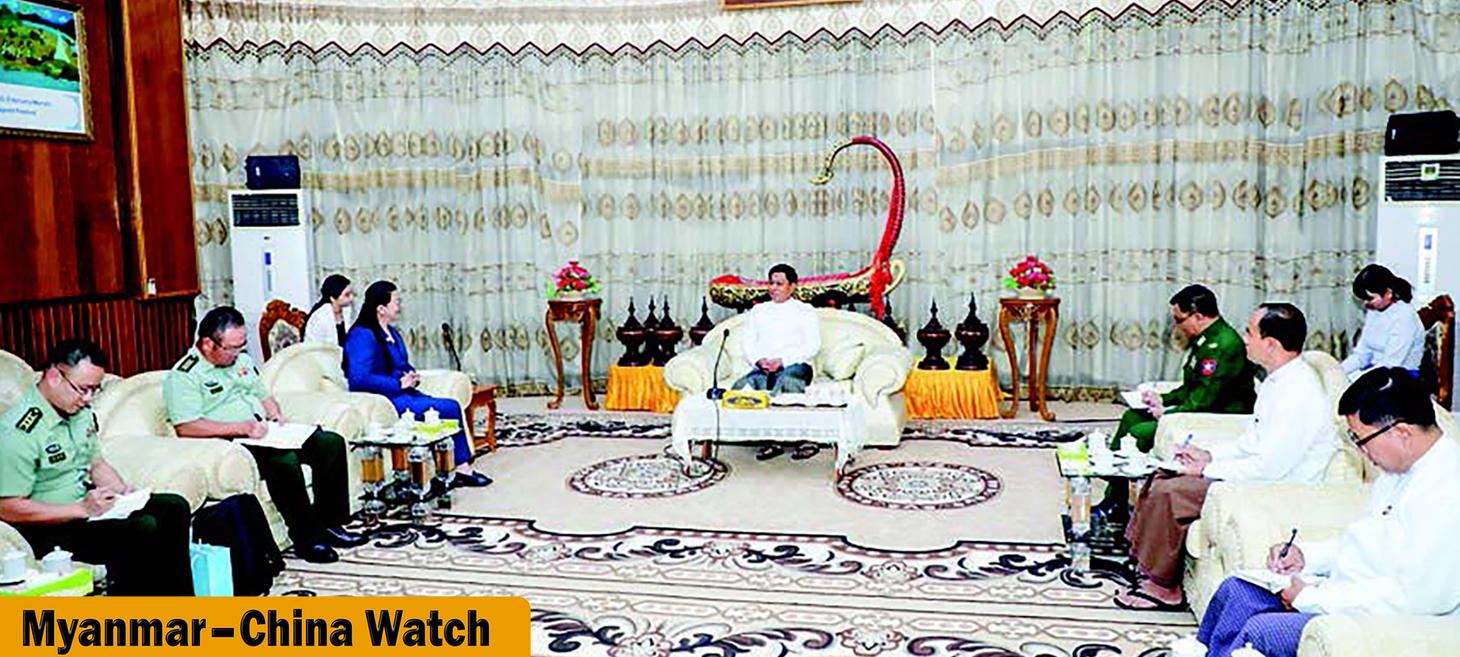
China Discusses Military Training with Myanmar Junta
China and Myanmar's military junta have discussed military training cooperation, as revealed during a meeting between junta leader Min Aung Hlaing and China's Defense Minister Li Shangfu in Naypyitaw on April 25, 2023. The talks focused on enhancing military cooperation, particularly in areas of training and technology. This meeting is part of China's ongoing efforts to maintain influence in Myanmar amid the country's political turmoil following the 2021 coup. While China has expressed support for Myanmar's stability, it has also maintained ties with some ethnic armed organizations opposing the junta. The discussions on military training cooperation highlight China's complex balancing act in Myanmar, as it seeks to protect its strategic and economic interests in the region while navigating the country's internal conflicts.
General News
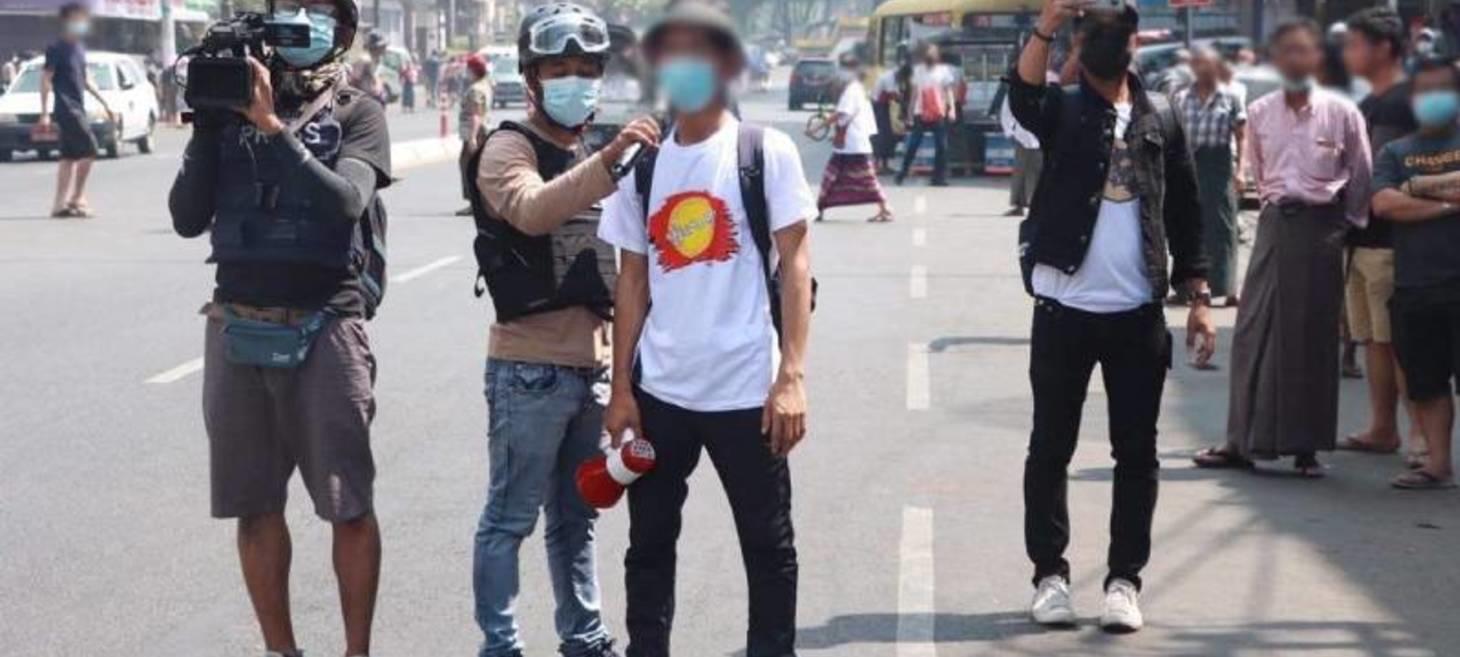
Myanmar sentences journalists to decades in prison without explanation
On September 2, 2024, the International Federation of Journalists (IFJ) and the Myanmar Journalist Network (MJN) jointly condemned the severe sentencing of two Burmese journalists, Myo Myint Oo and Aung San Oo, associated with Dawei Watch. The journalists were sentenced to life and 20 years imprisonment respectively by a military court in Myeik, Myanmar, on August 27, without proper explanation or due process. Arrested in December 2023, they were reportedly subjected to violent interrogation and denied legal defense. This case highlights the ongoing repression of media freedom in Myanmar since the 2021 military coup, with numerous journalists facing arrests, attacks, and killings. The IFJ and MJN called for increased global efforts to support independent Burmese media and condemned the junta's actions as clear violations of press freedom and human rights, urging the international community to take stronger action in support of Myanmar's embattled journalists.
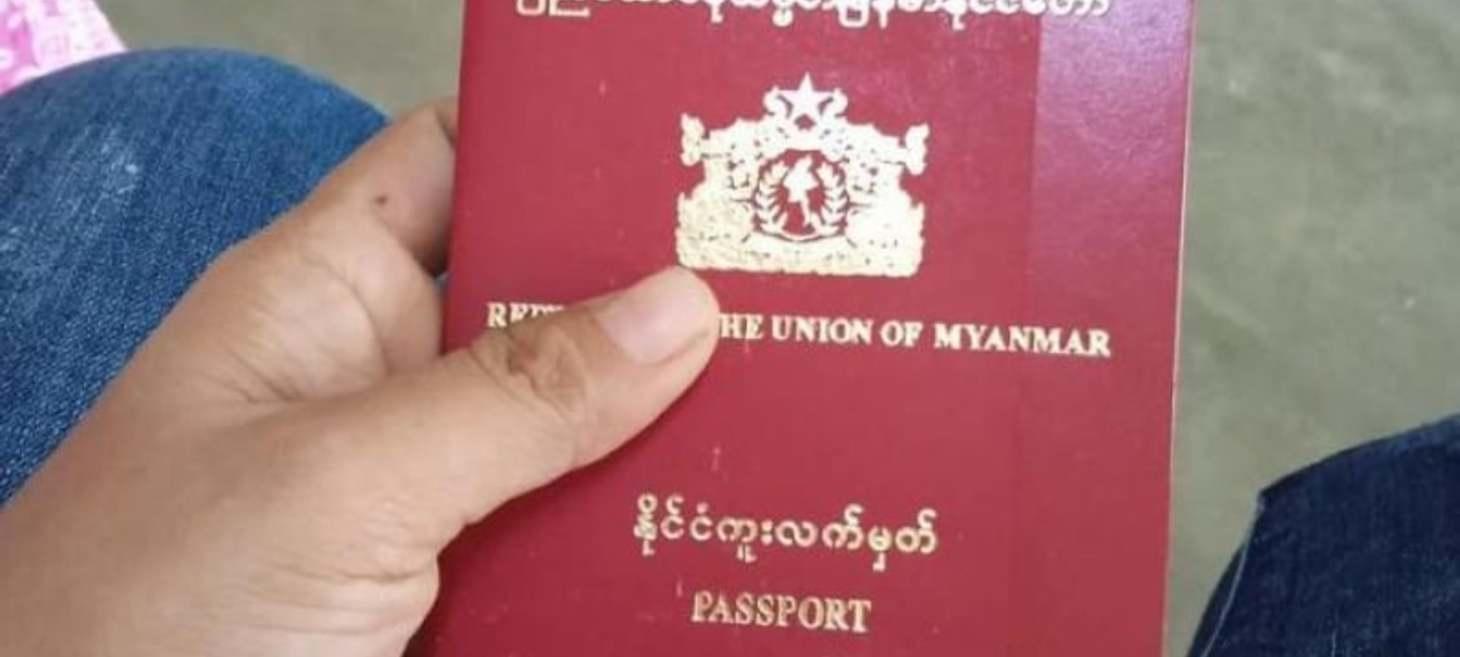
Fees for Myanmar passport increased
The Myanmar Passport Issuing Authority announced an increase in passport fees from 35,000 Kyat to 40,000 Kyat effective September 1, 2024. Online bookings for passport applications, initially available in major cities, have been expanded to additional branch offices since May. Despite warnings against using brokers, many are rushing to obtain passports, leading to frequent fraud cases. Restrictions include a ban on converting PJ passports to PV for five years and prohibiting those aged 18-31 from traveling abroad with PJ passports. The junta has tightened travel controls, with travelers facing extensive questioning at Yangon airport and border checkpoints. Since the coup, over two million people have left Myanmar, driven by various factors, including the recent enforcement of the People’s Military Service Law. The cost for these travelers is substantial, with each spending at least $1,000, totaling nearly $2 billion for air travel alone.
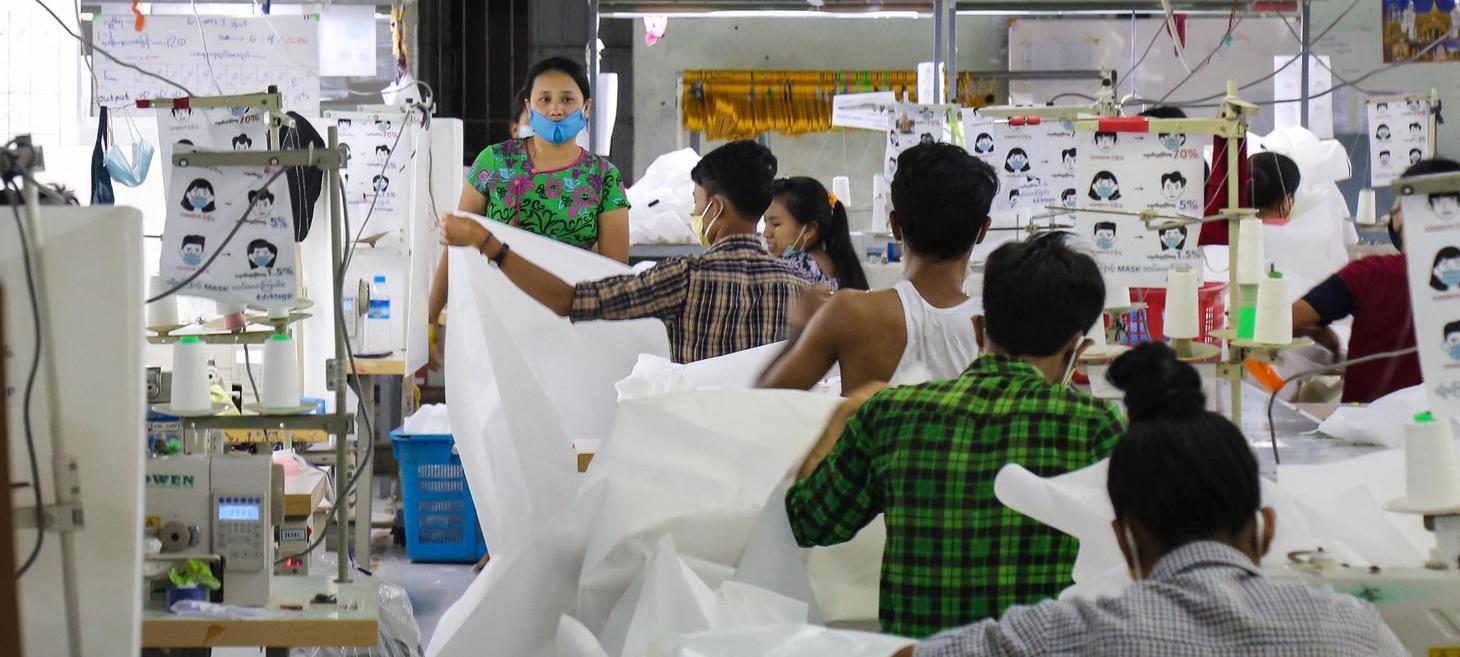
Yangon factory workers alarmed by junta’s demand for personal details
Myanmar's military regime has issued a directive to factory owners in Yangon, demanding they submit their employees' details to the junta's Department of Labour and the Hlaing Tharyar Industrial Zone Management Committee by the end of August. This order, communicated on August 23 through a Viber chat group for industrialists, has raised concerns among garment workers who fear the information could be used for military conscription. However, the unofficial nature of the communication has led to inconsistent compliance, with some factory owners and a member of the Myanmar Garment Manufacturers Association reporting they have not received any official notice. While some believe the data collection is for census purposes, the lack of clarity has heightened anxiety among workers in Yangon's industrial zones.
Humanitarian
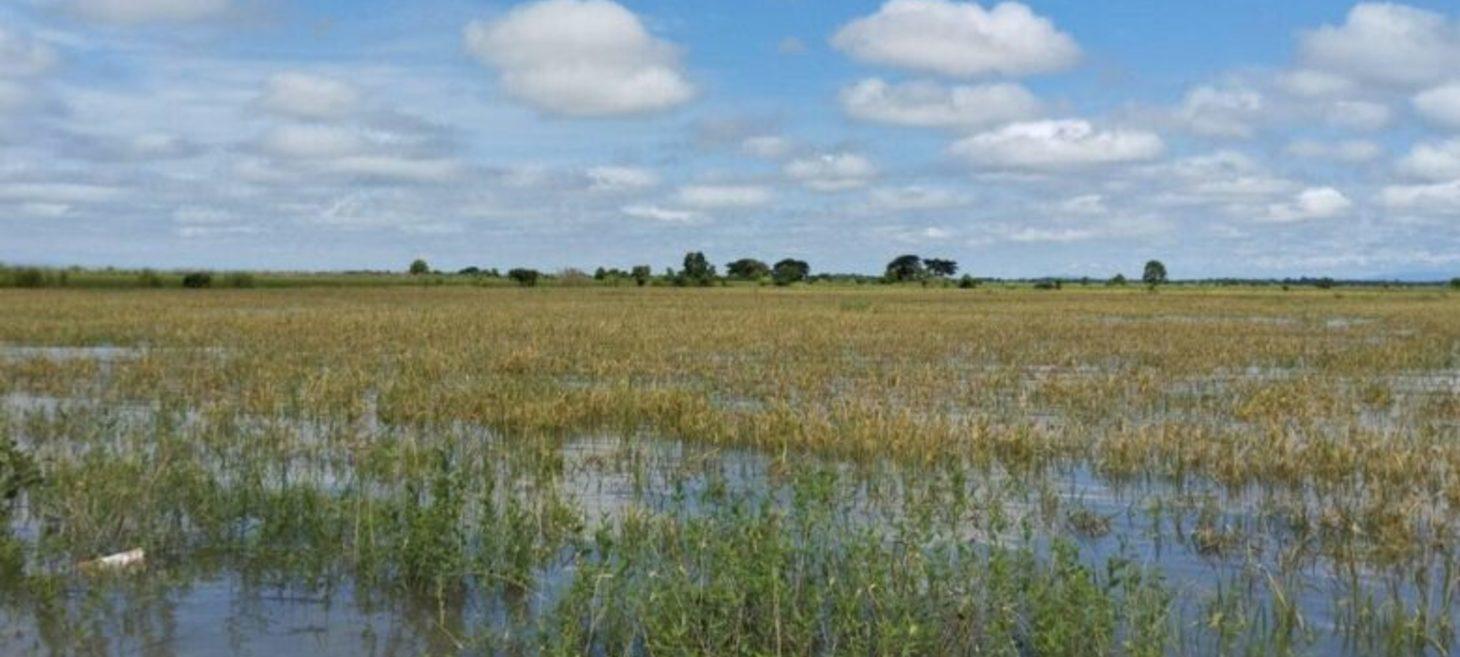
Junta dam breach displaces 5,000 in Taungoo Township, Bago Region
Locals allege that the Myanmar junta deliberately breached two dams on tributaries of the Sittaung River, causing severe flooding that has affected over 5,000 people in Taungoo Township and surrounding areas. The flooding, which was not due to heavy rainfall, has led to water levels rising to head height in some areas, forcing residents to use makeshift rafts for transportation. Particularly hard-hit are low-lying areas of Taungoo Town and villages along the Sittaung River. Local humanitarian organizations have set up temporary shelters in schools and monasteries, housing about 2,500 displaced people. The junta has provided no aid, leaving victims to rely on donations from within Myanmar and the diaspora. Some areas are experiencing health issues due to a lack of clean water. The flooding, believed to be the worst in Taungoo Town's history, reportedly began shortly after junta leader Min Aung Hlaing visited the area on August 23, fueling suspicions of deliberate dam breaches.